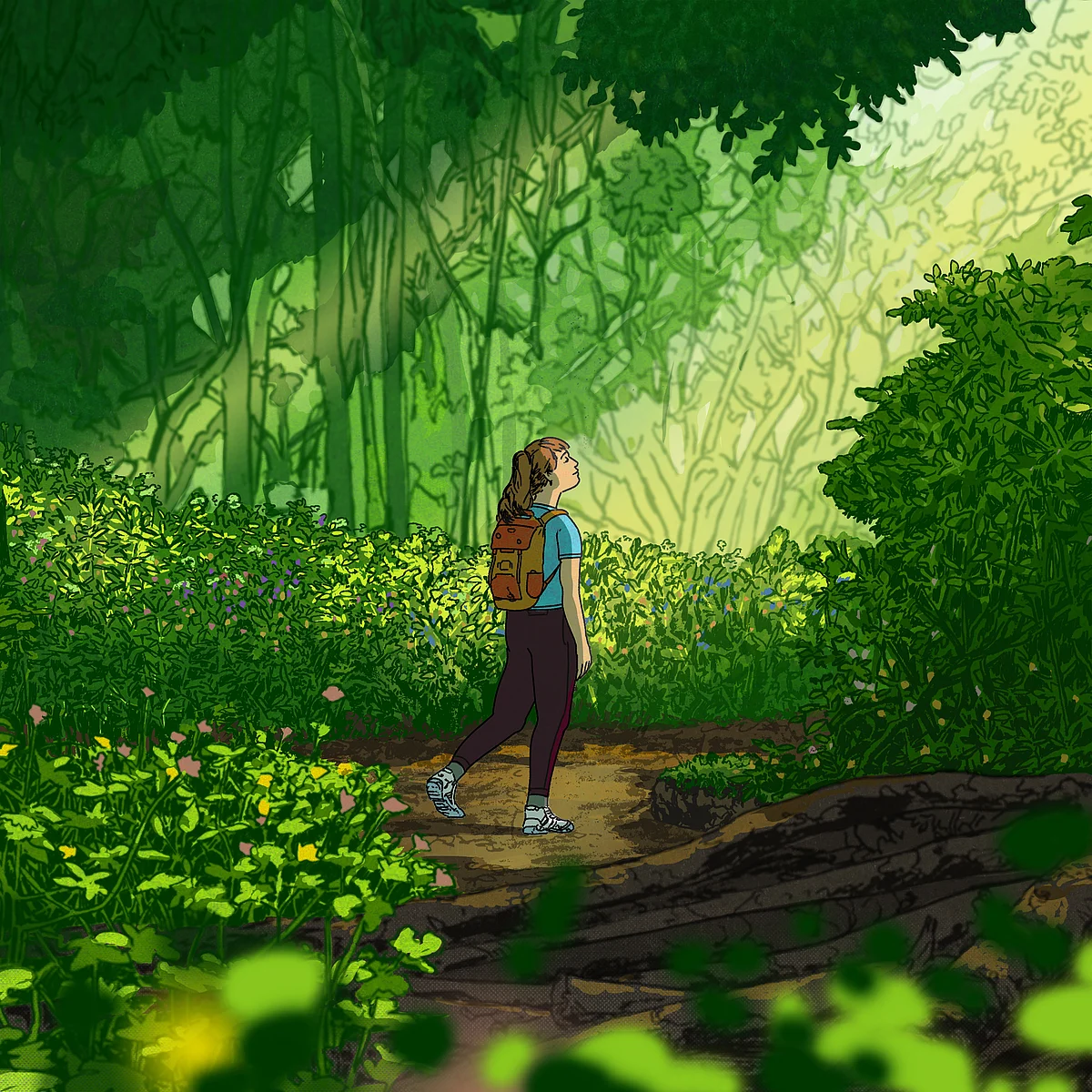
A Surprising And Easy Way To Boost Your Attention Span
In 2008, 38 students at the University of Michigan set out on a walk. Half of them wound their way through the trees in Ann Arbor's Nichols Arboretum for 2.8 miles, while the other half navigated the same distance on the busy streets of downtown. A week later, the two groups swapped routes.
Both times before they set out, the students took a test that challenged their attention and working memory, where they were given progressively longer sequences of numbers that they had to repeat back in reverse order. When they returned to campus, the students took the test again. Walking through town improved their performance slightly, but walking in nature boosted scores by nearly 20 per cent.
Recommended For You“You didn't even need to like or enjoy the nature walk to get these cognitive benefits,” said Marc Berman, a professor of psychology at the University of Chicago, who conducted the study while he was a graduate student at Michigan. People who walked on a cold January day experienced just as much benefit as those who did the experiment in July.
The effect that nature has on our minds has been studied many times before and since, and the research generally - though not always - finds that exposure to green spaces boosts our cognition and creativity, not to mention our mood.
Many of us have experienced firsthand the natural world's ability to revitalize us - a moment of clarity after summiting a mountain, or renewed focus following a lunchtime stroll in the park. Scientists are trying to understand exactly why that happens.
In his new book,“Nature and the Mind,” Berman attributes the cognitive benefits of nature to“attention restoration theory.” First proposed in the 1980s by Rachel and Stephen Kaplan (both of whom were psychology professors at the University of Michigan when Berman was a student there), the premise is that our ability to focus is a finite resource that gets easily used up, and being in nature is an effective way to replenish it.
One of the most important things about nature, according to attention restoration researchers, is that it is“softly fascinating,” meaning it tickles our attention in a gentle way without being too boring or stimulating. (Think about watching ocean waves roll in and out, or gazing at a field of wildflowers.) Urban environments, by contrast, are more harshly fascinating and demand our vigilance in a way that depletes us.
Berman posits that one reason nature has this effect on us is because of its physical properties, particularly its curved lines and fractals. And the arc of a river or a rock formation, or the repeating patterns of a snowflake, may be easier for our brains to process than the straight edges of a skyscraper.“That might give our brains a rest, and that's why we might see these benefits,” he said.
Attention restoration theory has dominated the field of environmental neuroscience for decades, but not everyone is fully convinced.
“The evidence is accumulating that, yes, something about walking in nature is benefiting our attention,” said Gloria Mark, a professor of informatics at the University of California, Irvine, and the author of the book“Attention Span.” But, she added, attention restoration is“a theory, and we don't know if that's the real explanation for what's going on.”
It's a little“hand-wavy,” agreed Amy McDonnell, a postdoctoral research fellow at the University of Utah. Much of the research relies on cognitive tests and people's subjective reports of how being in nature makes them feel, and there are a lot of open questions, like what's actually happening in the brain.
McDonnell is one of the experts trying to fill in that gap. Last year, she ran a similar experiment to Berman's, in which people walked either through a local arboretum or on an urban medical campus. Walking in both settings improved people's cognitive abilities compared to their pre-walk scores. But when McDonnell looked at their brain waves using EEG, those who were in nature had less brain activity immediately after the walk, followed by bigger spikes while they were performing the attention task the second time.
That suggests the brain rested“and then came back online more efficient and stronger than ever after exposure to nature, compared to an urban environment,” McDonnell said.
There is also some debate as to whether it's the physical properties of nature that confer restorative benefits, as Berman proposes, or something else. For example, McDonnell said, maybe the healthy effects come from other experiences that often accompany time in nature: Is it that you're alone? Is it that you are exercising, or that you're simply away from work? Does the air quality matter?
Or it may be something the nose knows. In a paper published last year, experts from diverse fields suggested that nature's effects on our well-being may have something to do with the olfactory signals we encounter when we're outdoors, such as the chemicals that trees emit.
It probably isn't just one thing that makes nature so good for our brains, said Ruth Garside, a professor at the University of Exeter Medical School in England, who published a review of attention restoration theory.
“There's a bit of me that thinks part of the magic, if you like, is that it is actually this combination of stuff that's working,” Garside said.“And we might be losing something the more we try to pick apart the explanations.”
This article originally appeared in The New York Times.

Legal Disclaimer:
MENAFN provides the
information “as is” without warranty of any kind. We do not accept
any responsibility or liability for the accuracy, content, images,
videos, licenses, completeness, legality, or reliability of the information
contained in this article. If you have any complaints or copyright
issues related to this article, kindly contact the provider above.

















Comments
No comment